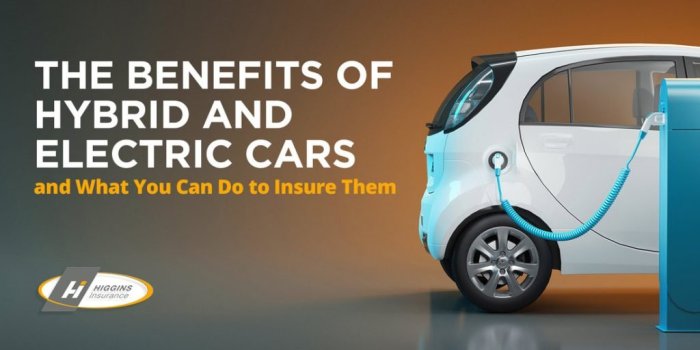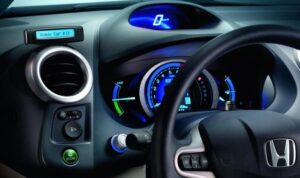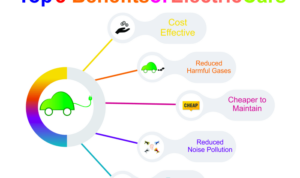Hybrid cars benefits are a game-changer in the automotive industry, offering a combination of fuel efficiency, eco-friendliness, and cost-effectiveness that traditional vehicles can’t match. As we delve into the world of hybrid cars, you’ll discover the myriad advantages they bring to the table.
From reducing carbon footprint to saving money on fuel, hybrid cars are paving the way for a greener and more sustainable future. Let’s explore the perks of owning a hybrid vehicle that go beyond just being a mode of transportation.
Introduction to Hybrid Cars: Hybrid Cars Benefits
Hybrid cars are vehicles that utilize a combination of a gasoline engine and an electric motor to power the vehicle. They differ from conventional vehicles in that they can switch between the two power sources or use them simultaneously, depending on driving conditions.
Main Components of Hybrid Cars
Hybrid cars consist of several key components that work together seamlessly to provide optimal fuel efficiency and performance:
- The gasoline engine: Responsible for generating power and charging the electric motor’s batteries.
- The electric motor: Assists the gasoline engine in propelling the vehicle and can operate independently at low speeds.
- The battery pack: Stores energy generated from braking and the gasoline engine to power the electric motor.
- The regenerative braking system: Captures energy from braking and converts it into electricity to recharge the battery pack.
Environmental Impact of Hybrid Cars
Hybrid cars are known for their reduced emissions and improved fuel efficiency compared to traditional vehicles. By using electricity from the battery pack, hybrid cars can lower their reliance on gasoline, resulting in fewer greenhouse gas emissions and less air pollution.
Popularity and Growth of Hybrid Cars
Hybrid cars have gained popularity in the automotive industry due to their eco-friendly reputation and cost savings on fuel. With advancements in technology, more automakers are offering hybrid options in their vehicle lineups, contributing to the growth of hybrid car sales worldwide.
Benefits of Hybrid Cars
Hybrid cars offer a variety of advantages that make them an attractive option for environmentally-conscious and budget-savvy drivers. Let’s dive into some key benefits of owning a hybrid car.
Reduced Fuel Consumption and Cost Savings
- Hybrid cars utilize a combination of an internal combustion engine and an electric motor, allowing them to achieve better fuel efficiency compared to traditional gas-powered vehicles.
- By relying more on electric power, hybrid cars consume less gasoline, resulting in significant savings on fuel costs over time.
- Regenerative braking technology in hybrids also helps to recharge the battery while driving, further improving fuel efficiency and reducing overall fuel consumption.
Impact on Greenhouse Gas Emissions
- Hybrid cars produce lower levels of harmful emissions such as carbon dioxide and nitrogen oxides compared to conventional vehicles, contributing to a cleaner environment.
- The reduced reliance on gasoline in hybrid cars helps to decrease the overall carbon footprint, making them a more eco-friendly transportation option.
- Switching to a hybrid car can play a significant role in combating climate change by lowering greenhouse gas emissions and promoting sustainability.
Maintenance Costs Comparison, Hybrid cars benefits
- While the initial purchase price of a hybrid car may be slightly higher than that of a traditional vehicle, owners can often recoup the investment through lower fuel and maintenance costs in the long run.
- Hybrid cars tend to have fewer mechanical components and experience less wear and tear on the engine due to the efficient use of electric power, resulting in reduced maintenance and repair expenses over time.
- Overall, the lower maintenance costs associated with hybrid cars make them a cost-effective and sustainable choice for drivers looking to save money in the long term.
Environmental Impact

Hybrid cars play a crucial role in helping to create a cleaner environment by reducing harmful emissions and promoting sustainability. These vehicles utilize a combination of gasoline and electric power to operate, resulting in lower fuel consumption and fewer greenhouse gas emissions compared to traditional gas-powered cars.
Reducing Carbon Footprint
Hybrid cars are designed to be more fuel-efficient, which means they produce fewer emissions that contribute to air pollution and climate change. By reducing the carbon footprint of transportation, hybrid technology helps to combat global warming and create a healthier environment for all living beings.
Conserving Energy Resources
Hybrid cars are energy-efficient vehicles that use regenerative braking and advanced technologies to optimize fuel consumption. By conserving energy resources and reducing dependency on fossil fuels, hybrid cars help to promote sustainable practices and lessen the impact on the environment.
Promoting Sustainability
Hybrid cars are a sustainable transportation option that aligns with the goal of reducing environmental impact. These vehicles are designed to be more efficient and eco-friendly, contributing to a cleaner environment and a greener future for generations to come.
Technology Advancements

Hybrid cars have seen significant technological advancements in recent years, making them more efficient and environmentally friendly than ever before. One key area of innovation lies in the improvement of battery technology and the implementation of regenerative braking systems.
Advancements in Battery Technology
One of the major breakthroughs in hybrid cars is the development of advanced battery technology. Lithium-ion batteries are now commonly used in hybrid vehicles, offering higher energy density and longer lifespan compared to traditional lead-acid batteries. This allows hybrid cars to store more energy and travel longer distances on electric power alone.
Efficiency of Regenerative Braking Systems
Regenerative braking systems are another crucial innovation in hybrid cars. These systems convert the kinetic energy generated during braking into electrical energy, which is then stored in the battery for later use. By capturing and reusing this energy that would otherwise be wasted, regenerative braking significantly improves the overall efficiency of hybrid vehicles.
Role of Regenerative Braking in Energy Efficiency
Regenerative braking plays a vital role in maximizing the energy efficiency of hybrid cars. By harnessing the energy generated during deceleration and braking, hybrid vehicles are able to reduce fuel consumption and emissions. This innovative technology not only improves the performance of hybrid cars but also contributes to a cleaner and more sustainable environment.

